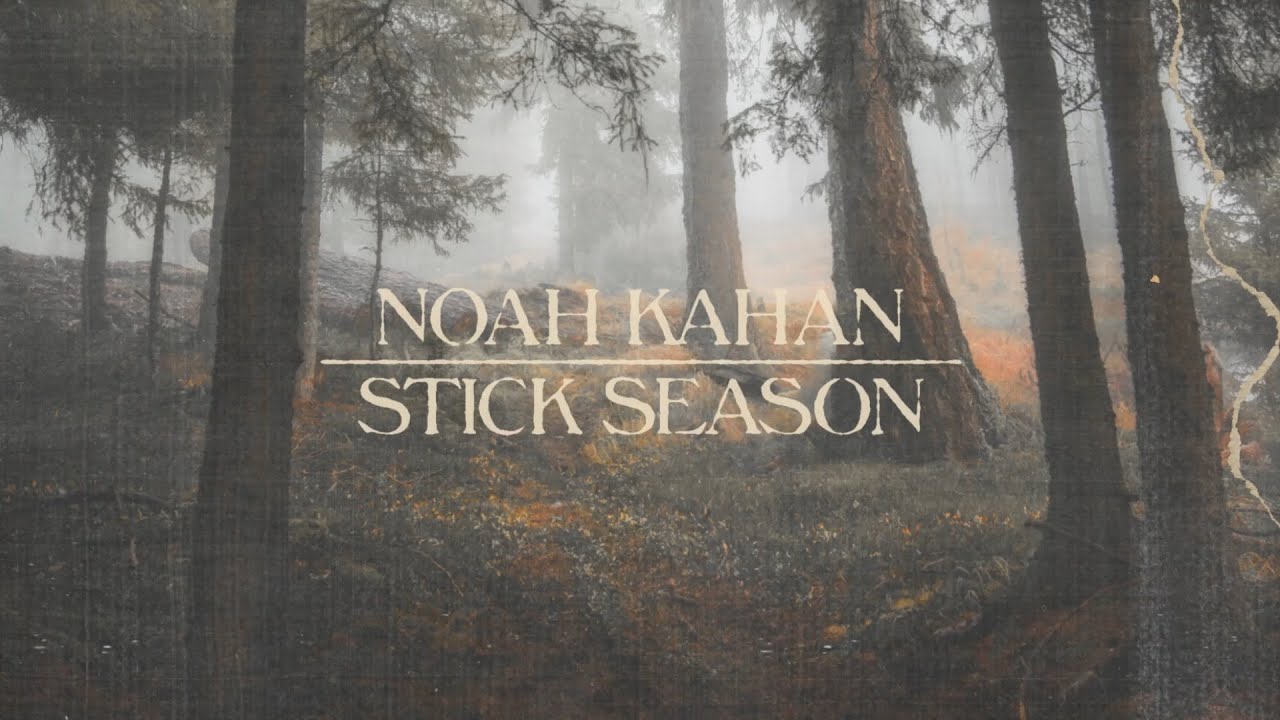The song “Stick Season” by Noah Kahan takes us on an emotional journey through heartbreak, nostalgia, and the heaviness of unresolved feelings. It’s important to remember that interpretations of lyrics are subjective, and what resonates with one person may differ from the artist’s intent. That said, let’s dive deep into the first verse.
“As you promised me that I was more than all the miles combined”—this line sets the stage for a broken promise. The speaker was assured they were more important than distance, but something changed. The miles aren’t just physical—they symbolize emotional distance that’s now grown too vast to ignore. The simplicity of the line contrasts with the weight of disappointment it carries. The word “promised” adds to the bitterness, a subtle way of expressing betrayal without ever explicitly saying it.
The shift in tone becomes clear with “You must’ve had yourself a change of heart like halfway through the drive.” This is where things begin to unravel. It’s not just about a literal drive; it’s the metaphorical journey of the relationship. The change of heart comes unexpectedly, mid-journey, leaving the speaker blindsided. It’s like the love they were banking on dissolved while they weren’t looking.
Then, the imagery sharpens: “Because your voice trailed off exactly as you passed my exit sign.” Here, the singer intertwines the physical with the emotional. The person keeps driving, leaving behind both a geographic exit and the metaphorical future they could have had together. The quiet, fading voice is more telling than any grand gesture of leaving—it’s a sign that their partner has already checked out emotionally.
“Kept on drivin’ straight and left our future to the right.” This line perfectly encapsulates the feeling of abandonment. There’s a visual element in this lyric, where the speaker imagines their future veering off to the side as their partner keeps going. The choice to continue straight, without hesitation, suggests a finality that’s hard to face.
“I am stuck between my anger and the blame that I can’t face”—this is where the internal struggle begins. The speaker grapples with their own feelings, unable to fully direct the blame outward. Instead of being able to point fingers at their partner, they’re stuck in a painful limbo, torn between anger and a gnawing sense of self-blame. It’s a universal feeling—this conflict between knowing who’s at fault and being unable to fully accept it.
In a raw, almost tragic moment of realization, Kahan sings, “And memories are somethin’ even smoking weed does not replace.” This hits hard. No amount of escapism can fill the void left by those memories. It’s not just about trying to forget—it’s about the impossibility of finding any substitute for what’s lost. The line brings a touch of modernity to the heartbreak, showing that even coping mechanisms can’t dull the edges of deep pain.
The next line, “And I am terrified of weather ’cause I see you when it rains,” brings in an unexpected association. Weather, something so uncontrollable, becomes tied to the speaker’s ex. The rain, often symbolic of sadness, grief, and melancholy, now haunts them. It’s a reminder that heartbreak isn’t just an internal feeling—it seeps into the world around you. The rain, once neutral, now carries emotional weight, making it impossible to escape the memories.
When the speaker adds, “Doc told me to travel, but there’s Covid on the planes,” the lyric brings us into the real world. It’s a small line but packed with significance. Here, we see the singer trying to take advice—trying to escape—but even global circumstances (Covid) are keeping them trapped. It’s a clever way of layering the emotional trap with a literal one, showing that sometimes, no matter how much we want to run, life doesn’t let us.
Moving into the chorus, “And I love Vermont, but it’s the season of the sticks,” we get the title’s reference. Vermont, once loved, is now a reflection of emotional barrenness. Stick season, as Kahan described, is that gray, in-between time. Just as the leaves have fallen and the snow hasn’t come, the speaker feels suspended in this season of emptiness. It’s neither here nor there—just a bleak waiting period. This perfectly mirrors the feeling of heartbreak, where you’re stuck in a painful middle space, waiting for relief that hasn’t arrived.
The next few lines, “I saw your mom, she forgot that I existed,” and “And it’s half my fault, but I just like to play the victim,” add another layer to the emotional complexity. Seeing the ex’s mom and realizing she’s already moved on adds a new sting. It’s not just about losing the partner; it’s about losing the extended connections, the people who were once part of your life. And then, there’s the subtle self-awareness—the admission of playing the victim, even though the speaker knows they share some of the blame. This admission is raw and honest, making the emotional weight all the heavier.
By the time we hear, “I’ll drink alcohol ’til my friends come home for Christmas,” the speaker has settled into a pattern of waiting and numbing. Drinking becomes a way to pass the time until something—anything—changes. Christmas, a time associated with warmth, family, and togetherness, feels distant.
